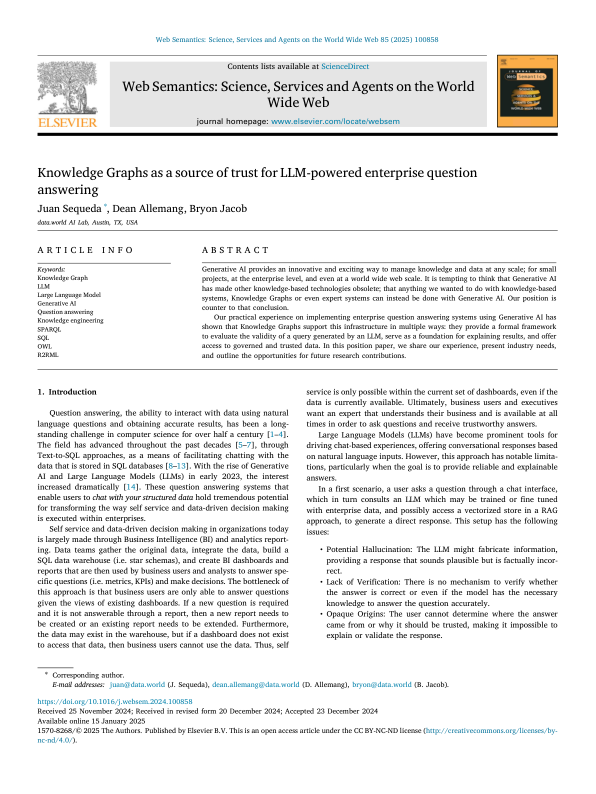
Metadata
- Author: Juan Sequeda
- Full Title:: Knowledge Graphs as a Source of Trust for LLM-powered Enterprise Question Answering
- Category:: 🗞️Articles
- Document Tags:: Foundational models, Text to SQL,
- URL:: https://readwise.io/reader/document_raw_content/280851227
- Read date:: 2025-03-23
Highlights
knowledge engineering, though not commonly emphasized in practice, forms a latent part of various roles across an organization. Anecdotally, we observe that this work is often sporadic and unsystematic, hindering consistent data understanding (View Highlight)
we emphasize the importance of creating a comprehensive set of test cases (View Highlight)
Currently, many companies and tools employ what can be described as ‘‘low-key semantics’’, primarily focusing on analytics use cases that require modeling metrics and dimensions coming from fact and dimension tables in a data warehouse. Example semantic layers are those from Snowflake,15 dbt,16 Cube,17 AtScale.18 In these scenarios, lightweight semantics may be sufficient, and there may not be a need to adopt more expressive ontologies and Knowledge Graph approaches. However, as the complexity of use cases increases, the limitations of these lightweight semantic approaches become apparent. They often lack support for more expressive semantics and advanced knowledge management needs. (View Highlight)